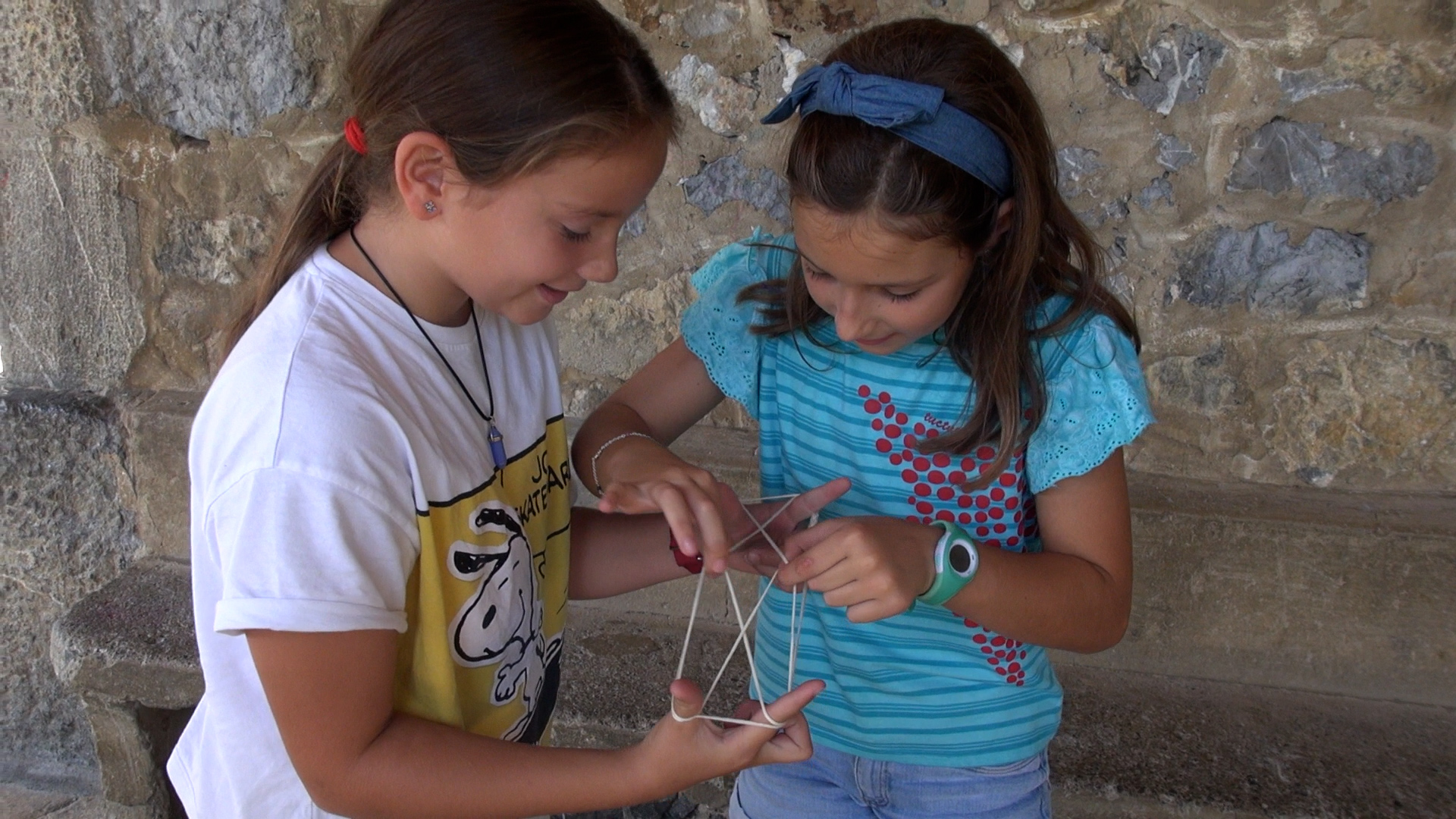Basque ethnography at a glance
This evening Ostu-ostuka eta txopinka will be screened at the Altamira Cultural Centre, as part of the European Heritage Days. This documentary features the traditional children’s games of this coastal town, based on the oral testimonies from local people from across the generations.
Despite the passing of the years, many of the childhood memories of our informants are directly related to playing: all those walks to Atxapunta, all that laughter, all those stories… Childhood friendships are often lifelong, because the ties of childhood are very strong.
Children learn to play naturally and right from an early age. Games are much more than a mere pastime for them; they are also a way of learning skills needed as they grow up. Children establish relationships by playing, fostering respect and friendship; they learn the rules of team games, develop imagination and creativity, and also physical abilities. Additionally, children – almost without realising – are immersed in Basque culture while they play; games are a way to pass down customs, values and traditions from generation to generation.
 In everyday life, as in other areas, games have also undergone huge changes in recent decades. Children now use advanced technologies and sophisticated toys, often at home and indoors; and generally involving a screen. However, children did not need much to have fun and play with others of the neighbourhood or town not long ago. Their toys were things they had around them: ropes, stones, sticks, and bird’s nests. And the areas around the farmsteads, fields and forests, squares and streets were their playgrounds. All that was needed was the active participation and imagination of the children playing, regardless of their age.
In everyday life, as in other areas, games have also undergone huge changes in recent decades. Children now use advanced technologies and sophisticated toys, often at home and indoors; and generally involving a screen. However, children did not need much to have fun and play with others of the neighbourhood or town not long ago. Their toys were things they had around them: ropes, stones, sticks, and bird’s nests. And the areas around the farmsteads, fields and forests, squares and streets were their playgrounds. All that was needed was the active participation and imagination of the children playing, regardless of their age.
Some of the typical games of Busturia, such as Crazy Bones, marbles… are very old, played around the world and have crossed borders and been passed down through the generations. However, other are more specific to the town. That is the case of txopinka, played by boys and girls (a version of Tag) or koxo-pla (local version of hopscotch) which girls play with great skill.
We now live in the digital era, and those games may seem old-fashioned, but continue to have their value and their importance.
Watch the video:
Akaitze Kamiruaga
Popular Cultural Heritage Department – Labayru Fundazioa


